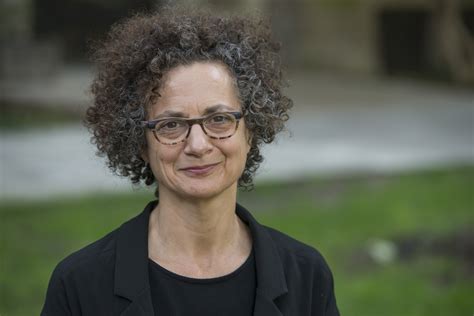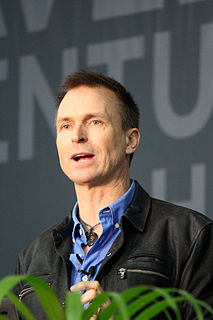A Quote by Natasha Trethewey
A poem I write is not just about me; it is about national identity, not just regional but national, the history of people in relation to other people. I reach for these outward stories to make sense of my own life, and how my story intersects with a larger public history.
Related Quotes
Many people don’t realize the extent to which stories influence our behavior and even shape our culture. Think about how Bible stories teach the fundamentals of religion and rules of conduct. Think of the fables and parables that molded your values. Think of how stories about your national, cultural or family history have shaped your attitudes about yourself and others.
Just recognizing and naming that many of the things we treat as historical fact are stories can help erode their power over our sense of identity and thinking. If they are stories rather than "truth," we can write new stories that better represent the country we aspire to be. Our new stories can be about diverse people working together to overcome challenges and make life better for all, about figuring out how to live sustainably on this one planet we share, and on deep respect for cooperation, fairness, and equity instead of promoting hyper-competitive individualism.
Identity is marketed in national capitalism as a property. It is something you can purchase, or purchase a relation to. Or it is something you already own that you can express: my masculinity, my queerness . But identity need not be simply a caption for an image of an unchangeable concrete self. It is also a theory of the future, of history.
For people who are coming out of an oral tradition, it is very exciting to get into reading and writing and it is quite interesting how frequently people want to write their own story. Sometimes it is straight history - this is how we came about, how our town was created, a lot of that kind of effort, as soon as literacy came. The first thing you wanted to do was to put something down about who you are or how you are related to you neighbors. Then the next stage would be the stories, the cultural part of the story: this is the kind of world our ancestors made or aspired to.
Stories about mental aberration and oddity only make sense in context. Just how do people live with someone who is peculiar, gifted, strange or alien? It's odd because there's a little part of me that wants to write about exotic, strange bizarre subjects. Instead, I've rather reluctantly realised that what I write about is families.
I was interested in the ways we can write biography. When you're first starting to write about your own life it feels so shapeless because you don't know how to make your own story cohesive. How do I pluck a story out of the entirety of what it means to be alive. It occurred to me recently that when you're telling a story about your own life, rather than taking a chunk, you're kinda like lifting a thread from a loom.
People who are just starting out are always sort of coming to me for advice as the example of "independent girl," and lots of people ask, well, how did you get the booking agent or the national distribution or the tours? And I look at them like, "Good lord! Relax!" I mean, how I did it was to not care about it and to not even think about it for years and years. All I thought about was getting the next little gig in the little bar, and I get this sense that people want me to give them the secret formula or the magic trick to make it all happen.
I think a lot of my interest in history now isn't so much in places and names and texts and public figures, but more in examining all the nuances and idiosyncrasies of particular stories of everyday people. And if that doesn't happen, then I usually transplant myself and my own stories to a particular historical event. Which is why you'll see me, the first person pronoun, interacting in a song about Carl Sandburg, or you'll find my [sic] interacting with Saul Bellow. It's sort of a re-rendering of history and making it my own.
I really am just trying to tell stories. But stories are often grounded in larger events and themes. They don't have to be - there's a big literature of trailer-park, kitchen-table fiction that's just about goings-on in the lives of ordinary people - but my own tastes run toward stories that in addition to being good stories are set against a backdrop that is interesting to read and learn about.







































